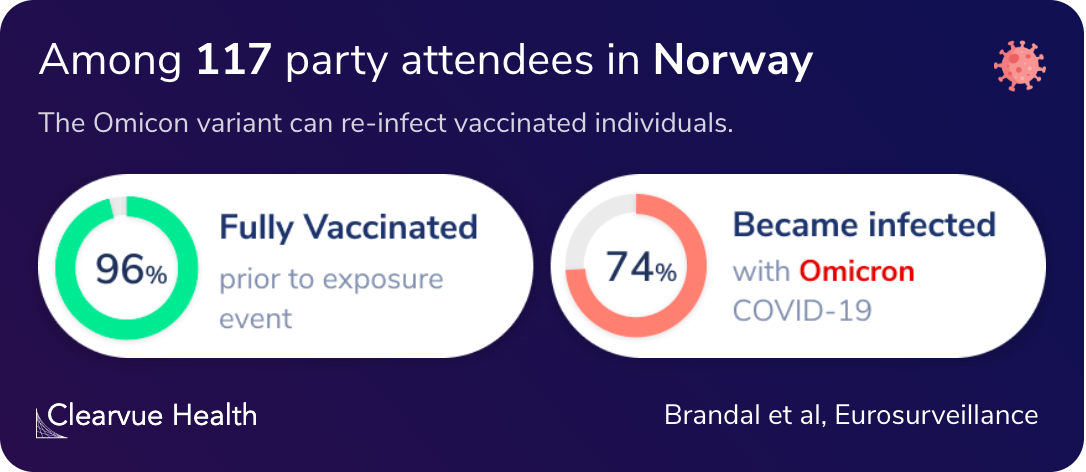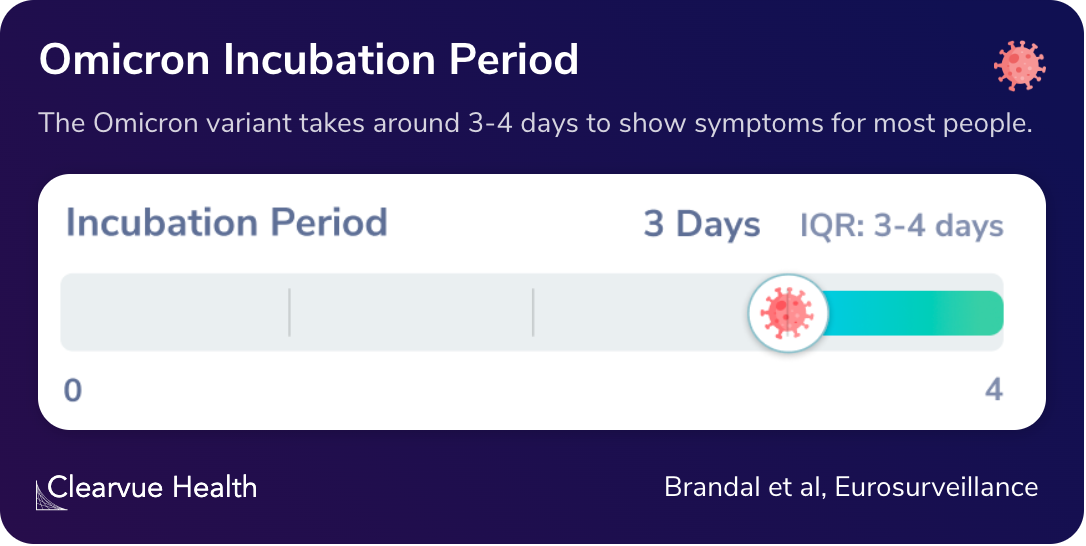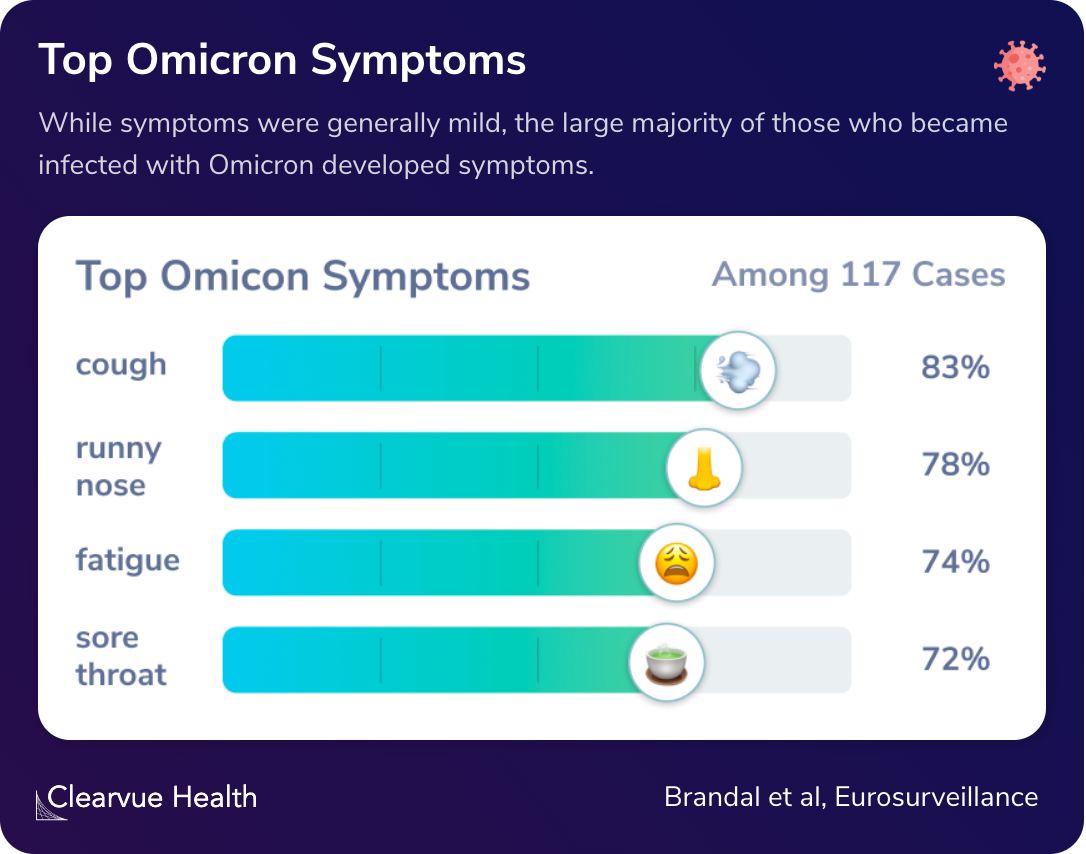Outbreak caused by the SARS-CoV-2 Omicron variant in Norway, November to December 2021
Lin T. Brandal, Emily MacDonald, , Lamprini Veneti , Tine Ravlo , Heidi Lange , Umaer Naseer , Siri Feruglio , Karoline Bragstad , Olav Hungnes , Liz E. Ødeskaug , Frode Hagen , Kristian E. Hanch-Hansen , Andreas Lind , Sara Viksmoen Watle , Arne M. Taxt , Mia Johansen , Line Vold , Preben Aavitsland , Karin Nygård , Elisabeth H. Madslie
Summarized by Charles Li, MD
March 9, 2022
Summary

One of the best-documented outbreaks of Omicron happened at a Christmas party in Norway.
In November 2021, 117 individuals gathered at a restaurant for a private event. 96% of those at the party were fully vaccinated against COVID-19. On November 30th, officials detected an outbreak.
Officials isolated and tested everyone at the party for COVID-19.
Eventually, 74% of those tested developed the Omicron variant of COVID-19.

It took between 0-8 days for individuals to develop symptoms after being exposed.
Since there was a well-defined exposure event, researchers were able to use this to estimate the incubation period of the Omicron variant.
They found that most individuals will develop symptoms between 3-4 days after exposure to the virus.

The most common symptoms were cough, runny or stuffy nose, fatigue, and sore throat.
Symptoms were generally mild. There were no reports of anyone having to go to the hospital. However, the high vaccination rate here may have played a role in preventing severe cases.

Study Figures

This chart shows when individuals developed symptoms after being exposed to Omicron. In this particular outbreak, most individuals were exposed during a Christmas party, as indicated by the black arrow. Most people showed symptoms around 3 days after the party.
Key Takeaway
The Omicron variant can reinfect those vaccinated against COVID-19. In this particular outbreak, nearly everyone was vaccinated. Yet still, most eventually came down with the omicron variant after being exposed.
This study was one of the first studies that documented how easily and quickly the omicron variant can spread.
The evidence here also provides valuable insights on the symptoms we can expect with Omicron. Nearly everyone will develop a cough and runny nose. Loss of taste and smell are relatively rare with Omicron. While symptoms were generally mild, the high vaccination rate may have played a role in preventing severe infections and hospitalizations in this particular case.
Visual Abstract
